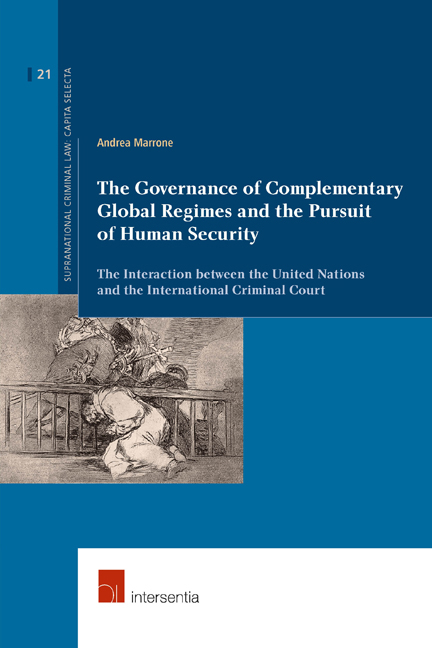 The Governance of Complementary Global Regimes and the Pursuit of Human Security
The Governance of Complementary Global Regimes and the Pursuit of Human Security This study explores the governance of global regimes fostering peace, justice and security in extreme situations of war and crime. It examines the quest of complementarity between international frameworks of governance and the dilemma of human security measures applied in the practice on the ground in conflict and post-conflict situations. It debates the challenges, obstacles and concerns in the governance of peace operations, law enforcement and civilian protection duties. It argues about the meaning of international humanitarian escalations of last resort under the flag of civilian protection duties. It debates the requirement of a political road map centralizing civilian protection duties in collapsed societies. It examines the governance of international mandates in the field operations not being appropriately integrated between them, and which obviously lose part of their effectiveness. The analysis of the humanitarian escalations of last resort between complementary global regimes and their impact in the field operations is central for new policy orientations. The presence of both the United Nations and the International Criminal Court; the configuration of international mandates on the ground; the deployment of peace enforcement operations; the investigations and prosecutions of mass atrocity crimes are interdendent resources. They deserve accurate risk assessments for the sake of civilians in multiple situations. These global tools have the potential to improve human security expectations in situations of war and crime. There is, however, a long way ahead. After a decade of the Court's existence and activity the practice demonstrates the needs for integration, harmonization and consolidation between global regimes of complementary character.
The preliminary part of this study addresses serious concerns in the institutional and normative decentralization characterizing the emerging regime of justice falling under the Rome Statute. It also emphasises the theories of ‘statehood’, ‘sovereignty’ and ‘governance’ and the urgent requirement of political convergence on sensitive issues. The introduction argues that due to the absence of a supranational organization for an implementation of the emerging regime of justice at domestic, regional and international levels the harmonization between so defined multilateral, global, universal, complementary international governance institutions involved in conflict and post-conflict situations is fundamental.
To save this book to your Kindle, first ensure [email protected] is added to your Approved Personal Document E-mail List under your Personal Document Settings on the Manage Your Content and Devices page of your Amazon account. Then enter the ‘name’ part of your Kindle email address below. Find out more about saving to your Kindle.
Note you can select to save to either the @free.kindle.com or @kindle.com variations. ‘@free.kindle.com’ emails are free but can only be saved to your device when it is connected to wi-fi. ‘@kindle.com’ emails can be delivered even when you are not connected to wi-fi, but note that service fees apply.
Find out more about the Kindle Personal Document Service.
To save content items to your account, please confirm that you agree to abide by our usage policies. If this is the first time you use this feature, you will be asked to authorise Cambridge Core to connect with your account. Find out more about saving content to Dropbox.
To save content items to your account, please confirm that you agree to abide by our usage policies. If this is the first time you use this feature, you will be asked to authorise Cambridge Core to connect with your account. Find out more about saving content to Google Drive.